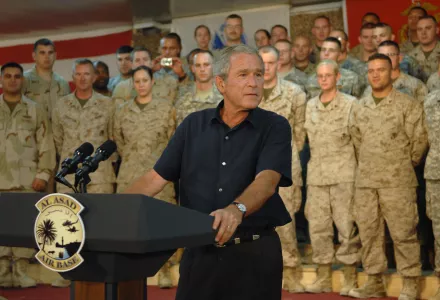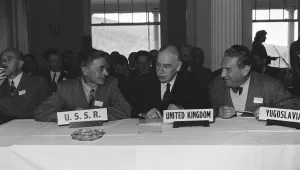International Security is America's leading peer-reviewed journal of security affairs.

Summary
Presidents trying to avoid the political costs of exerting civilian control over the military have four potential approaches: defer to military officials on the broad strategic direction of a war; engage in horse-trading over troop deployments; sidestep leaders who disagree with civilian preferences in favor of alternative sources of advice; and stack the deck to ensure that the military provides recommendations civilian leaders want to hear. The Bush and Obama administrations’ decisions during the Iraq War illustrate these behaviors.
Andrew Payne, "Bargaining with the Military: How Presidents Manage the Political Costs of Civilian Control," International Security 48, no. 1 (Summer 2023), 166–207, https://doi.org/10.1162/isec_a_00468.
The full text of this publication is available in the link below.



